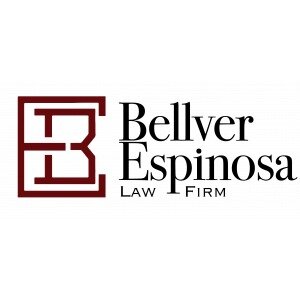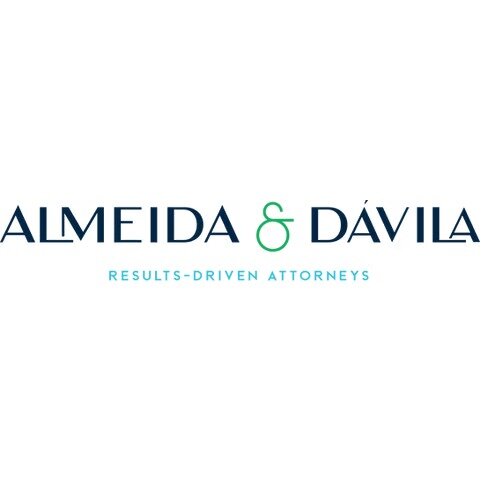Best Creditor Lawyers in Puerto Rico
Share your needs with us, get contacted by law firms.
Free. Takes 2 min.
Or refine your search by selecting a city:
List of the best lawyers in Puerto Rico
About Creditor Law in Puerto Rico
Creditor law in Puerto Rico encompasses the rights and obligations of creditors and debtors, focusing on the fair and legal recovery of debts. It includes regulations on loan agreements, collections procedures, and bankruptcy. Given Puerto Rico's unique status as a U.S. territory, its creditor laws blend local statutes with federal U.S. laws, which adds an additional layer of complexity when dealing with collections and creditor rights.
Why You May Need a Lawyer
There are numerous situations where individuals or businesses may need legal assistance related to creditor rights in Puerto Rico. These include:
- Disputing incorrect or unfair debt reports on credit.
- Negotiating repayment plans with creditors.
- Defending against aggressive debt collection practices.
- Filing for bankruptcy protection under Chapter 7, 11, or 13.
- Understanding and asserting legal rights during foreclosure proceedings.
- Handling lawsuits from creditors.
- Need for structuring or restructuring credit agreements appropriately.
Local Laws Overview
Creditor laws in Puerto Rico are shaped by both local and federal legislation. Key aspects include:
- Puerto Rico Civil Code: Governs contractual relationships including loan agreements.
- Fair Debt Collection Practices Act (FDCPA): Applies to how debts can be collected by agencies or attorneys.
- Bankruptcy Code: Provides different chapters for filing bankruptcy, adapted for Puerto Rico residents and businesses.
- Uniform Commercial Code (UCC): Provides foundational rules for commercial transactions, impacting creditor rights.
- Federal Consumer Protection Laws: Oversee fair credit reporting and lending practices, intertwined with local regulations.
Frequently Asked Questions
What rights do creditors have in Puerto Rico?
Creditors have the right to collect debts owed to them, following the legal procedures set by local and federal laws. They may also seek liens on a debtor’s property or take legal actions for recovery.
Are there laws protecting debtors from harassment in Puerto Rico?
Yes, the Fair Debt Collection Practices Act (FDCPA) protects debtors from abusive or unfair collection practices by creditors.
Can creditors garnish wages in Puerto Rico?
Wage garnishment is permitted, but there are strict guidelines on the amount that can be garnished to ensure debtors can meet living expenses.
How long can a debt be collected in Puerto Rico?
Collection timeframes depend on the type of debt, but many are subject to a statute of limitations ranging from 3 to 15 years.
What recourse do I have if a creditor violates my rights?
You can file a complaint with regulatory agencies or pursue legal action against the creditor for violations of state or federal laws.
What should I do if I’m sued by a creditor?
Contact a creditor law attorney immediately to discuss your options, which may include negotiating a settlement or defending against the lawsuit.
Is bankruptcy an option in dealing with creditors in Puerto Rico?
Yes, bankruptcy can provide relief from debt. It is advised to consult a lawyer to determine if it’s the best option for your situation.
What happens to my property in bankruptcy?
The fate of your property depends on the type of bankruptcy. Chapter 7 may require liquidation, whereas Chapter 13 allows debt restructuring and debt repayment plans.
Can I negotiate with a creditor once a debt is in collections?
Yes, negotiation may lead to a more manageable repayment plan or settlement that is mutually agreeable.
What is the role of a creditor law attorney?
A creditor law attorney advises on debt-related matters, represents clients in disputes, negotiates settlements, and ensures compliance with applicable laws, providing a strategic advantage in legal or financial negotiations.
Additional Resources
For additional assistance, consider the following resources:
- Puerto Rico Department of Consumer Affairs (DACO)
- United States Bankruptcy Court for the District of Puerto Rico
- Consumer Financial Protection Bureau (CFPB)
- Federal Trade Commission (FTC)
Next Steps
If you require legal assistance with creditor law in Puerto Rico, consider the following steps:
- Document all interactions with creditors, including any communications and agreements.
- Gather relevant financial records, agreements, and correspondence related to the debt.
- Consult with a specialized attorney to understand your rights and formulate an action plan.
- Stay informed about your legal rights and responsibilities to make educated decisions about your financial situation.
By taking these steps, you will be better prepared to handle your creditor-related issues effectively.
Lawzana helps you find the best lawyers and law firms in Puerto Rico through a curated and pre-screened list of qualified legal professionals. Our platform offers rankings and detailed profiles of attorneys and law firms, allowing you to compare based on practice areas, including Creditor, experience, and client feedback.
Each profile includes a description of the firm's areas of practice, client reviews, team members and partners, year of establishment, spoken languages, office locations, contact information, social media presence, and any published articles or resources. Most firms on our platform speak English and are experienced in both local and international legal matters.
Get a quote from top-rated law firms in Puerto Rico — quickly, securely, and without unnecessary hassle.
Disclaimer:
The information provided on this page is for general informational purposes only and does not constitute legal advice. While we strive to ensure the accuracy and relevance of the content, legal information may change over time, and interpretations of the law can vary. You should always consult with a qualified legal professional for advice specific to your situation.
We disclaim all liability for actions taken or not taken based on the content of this page. If you believe any information is incorrect or outdated, please contact us, and we will review and update it where appropriate.
Browse creditor law firms by city in Puerto Rico
Refine your search by selecting a city.









